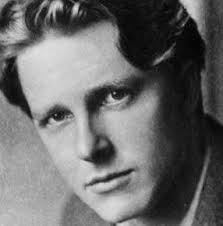Middlemarch by George Eliot
Middlemarch is a highly
unusual novel. Although it is primarily a Victorian novel, it has many
characteristics typical to modern novels. Critical reaction to Eliot's
masterpiece work was mixed. A common accusation leveled against it was its
morbid, depressing tone. Many critics did not like Eliot's habit of scattering
obscure literary and scientific allusions throughout the book. In their opinion
a woman writer should not be so intellectual. Eliot hated the "silly,
women novelists." In the Victorian era, women writers were generally
confined to writing the stereotypical fantasies of the conventional romance
fiction. Not only did Eliot dislike the constraints imposed on women's writing,
she disliked the stories they were expected to produce. Her disdain for the
tropes of conventional romance is apparent in her treatment of marriage between Rosamond and
Lydgate. Both and Rosamond and Lydgate think of courtship and romance in terms
of ideals taken directly from conventional romance. Another problem with such
fiction is that marriage marks the end of the novel. Eliot goes through great
effort to depict the realities of marriage.
Moreover, Eliot's many critics found Middlemarch to be too depressing for a woman
writer. Eliot refused to bow to the conventions of a happy ending. An
ill-advised marriage between two people who are inherently incompatible never
becomes completely harmonious. In fact, it becomes a yoke. Such is the case in
the marriages of Lydgate and Dorothea.
Dorothea was saved from living with her mistake for her whole life because her
elderly husband dies of a heart attack. Lydgate and Rosamond, on the other
hand, married young.
Two major life choices govern the narrative of Middlemarch. One is marriage and the other is
vocation. Eliot takes both choices very seriously. Short, romantic courtships
lead to trouble, because both parties entertain unrealistic ideals of each
other. They marry without getting to know one another. Marriages based on
compatibility work better. Moreover, marriages in which women have a greater
say also work better, such as the marriage between Fred and Mary. She tells him
she will not marry if he becomes a clergyman. Her condition saves Fred from an
unhappy entrapment in an occupation he doesn't like. Dorothea and Casaubon
struggle continually because Casaubon attempts to make her submit to his
control. The same applies in the marriage between Lydgate and Rosamond.
Characters
·
Mr. Bambridge
·
Dorothea Brooke
·
Arthur Brooke
·
Celia Brooke
·
Nicholas Bulstrode
·
Harriet Bulstrode
·
Edward Casaubon
·
Will Ladislaw
·
Tertius Lydgate
·
Rosamond Vincy




Comments
Post a Comment